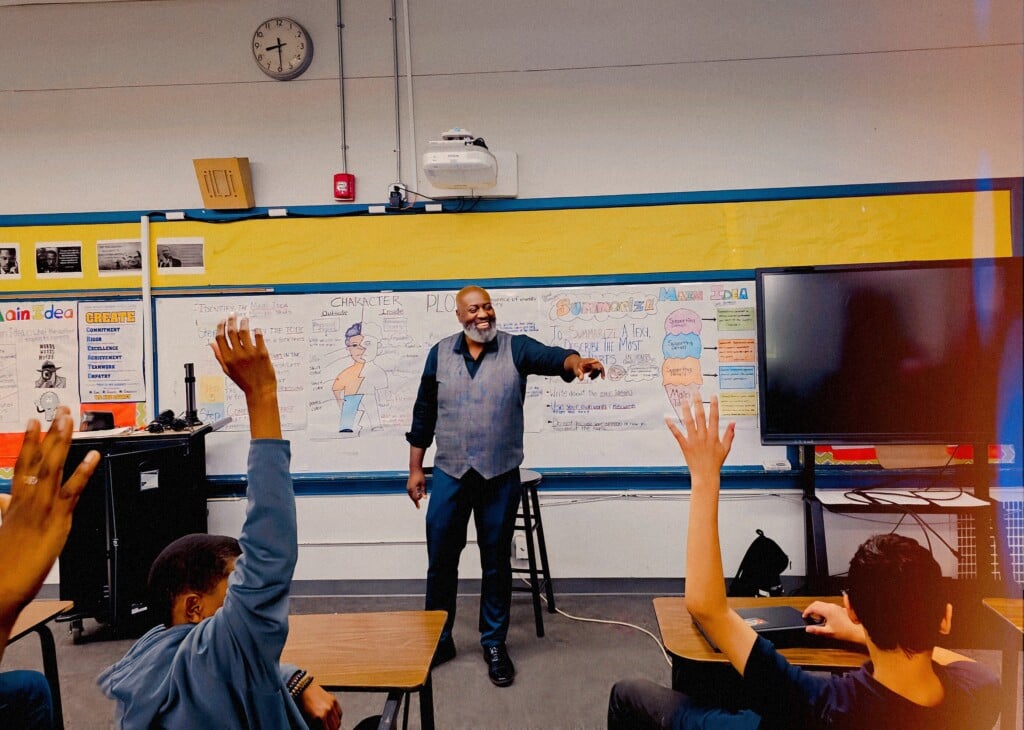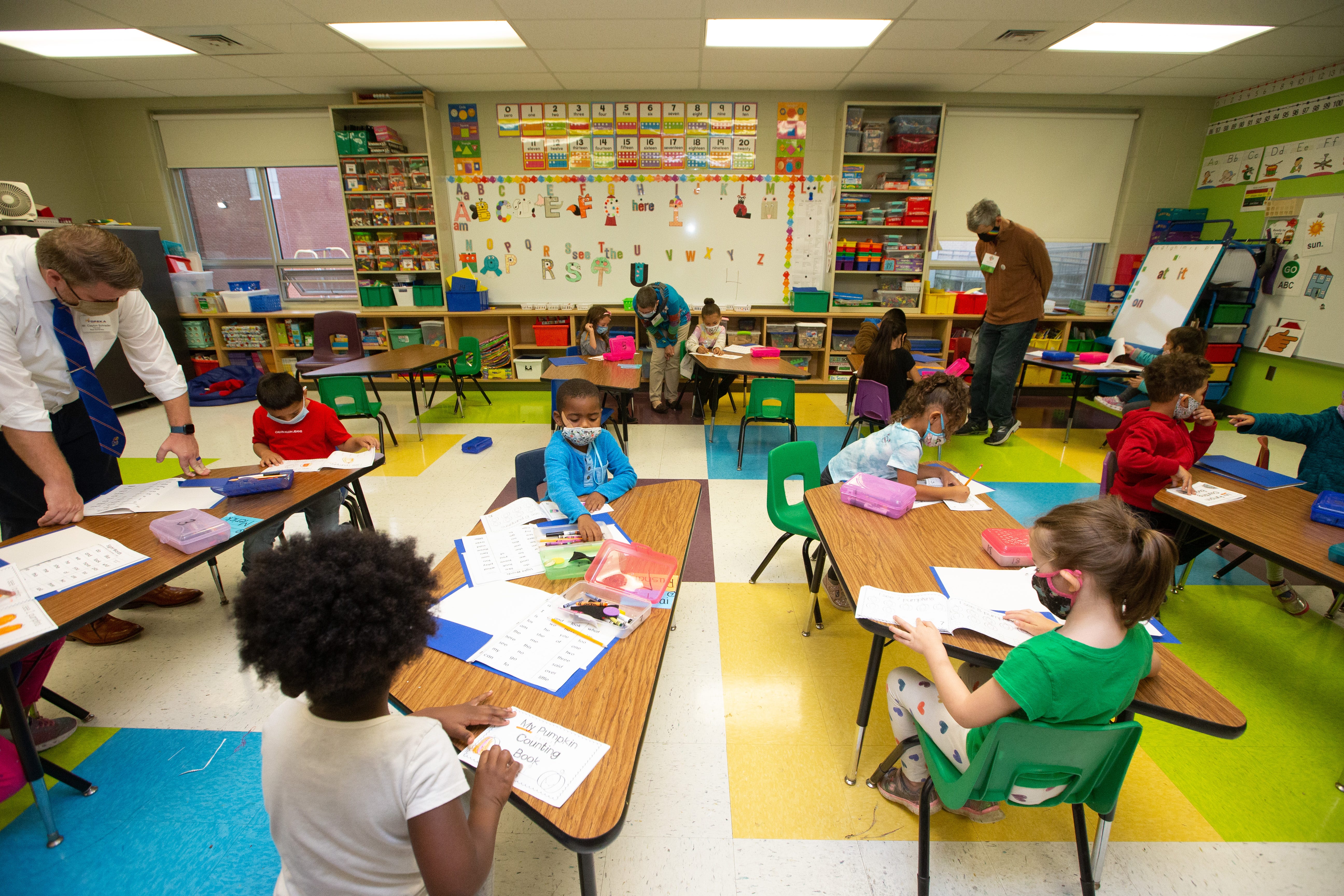Accelerate Learning with Primary Science Tuition Singapore for Young Minds
Accelerate Learning with Primary Science Tuition Singapore for Young Minds
Blog Article
Discover the Crucial Benefits of Comprehending Main Scientific Research for Young Students
The value of main science education for young learners extends much beyond simple expertise acquisition; it serves as an essential column in developing vital abilities such as vital thinking, problem-solving, and imagination. Engaging with clinical ideas via interactive and inquiry-based activities not only grows interest yet also lays the groundwork for resilient, confident learners.
Enhancing Essential Thinking Abilities
Cultivating critical thinking abilities in young learners is crucial for their cognitive advancement and future academic success. Critical reasoning enables youngsters to evaluate information, review evidence, and make notified choices, which are crucial skills in today's information-rich culture. By taking part in scientific query, young learners can enhance these skills as they explore concepts via reasoning, experimentation, and monitoring.
In primary scientific research education and learning, educators can facilitate critical reasoning by urging trainees to ask concerns, develop hypotheses, and conduct experiments. This hands-on approach allows children to exercise analytic and create logical reasoning skills. When trainees check out the homes of materials or the principles of activity, they discover to analyze their findings critically and attract final thoughts based on evidence.
Furthermore, discussions and joint jobs can advertise vital thinking by giving chances for learners to express their thoughts, challenge assumptions, and consider diverse point of views. By developing a supportive atmosphere that values query and reflection, educators can nurture important assuming abilities that empower young learners to become lifelong students and independent thinkers. Inevitably, improving these abilities lays a durable structure for their future scholastic endeavors and individual development.
Promoting Curiosity and Expedition

Primary scientific research education and learning provides a structured environment where young learners can check out different sensations with hands-on experiments and monitorings. By enabling them to engage with materials and take part in inquiry-based knowing, instructors produce chances for youngsters to create hypotheses, check their concepts, and attract verdicts. Such experiences nurture a feeling of wonder and enjoyment about science.

Structure Self-confidence in Issue Solving
Structure self-confidence in analytical is an important part of primary scientific research education and learning that encourages young students to approach challenges with strength and imagination - primary science tuition Singapore. They develop vital skills in crucial thinking and analysis when children are encouraged to engage with scientific principles through hands-on tasks and inquiry-based discovering. This process not only boosts their understanding of scientific concepts but also cultivates a feeling of possession over their discovering
To develop confidence, instructors should produce a supportive setting where blunders are deemed chances for growth instead of failures. This encourages trainees to take dangers and check out various services to troubles. By providing scaffolding and assistance, educators can assist pupils navigate complicated jobs, progressively raising their self-reliance in analytical situations.
Furthermore, joint understanding experiences, such as group tasks or experiments, can better enhance pupils' self-confidence as they find out to express their thoughts and pay attention to others' viewpoints. These interactions nurture social skills and strengthen the concept that see this website analytical is typically a cumulative undertaking. Eventually, cultivating self-confidence in problem-solving prepares young learners for future academic challenges and equips them with the devices needed for lifelong learning.
Urging Imagination and Advancement
In the realm of primary science education and learning, urging creativity and development is essential for cultivating a vibrant discovering atmosphere. By cultivating a society where young students can check out ideas and experiment openly, instructors assist trainees establish critical assuming skills and an interest for discovery. Imagination in science encourages kids to ask concerns, design theories, Discover More Here and take part in hands-on activities that promote their imagination.
Integrating open-ended jobs and inquiry-based knowing right into the educational program permits trainees to express their distinct perspectives and remedies. For example, when entrusted with addressing an issue pertaining to their atmosphere, students can brainstorm several methods, causing creative end results that display their originality. This not just strengthens their understanding of scientific concepts however likewise infuses a sense of possession over their discovering procedure.
Moreover, imaginative scientific research education and learning nurtures collaboration amongst peers, as students typically share ideas and build on each other's understandings - primary science tuition Singapore. This collective spirit advertises not only development yet additionally essential social abilities. Therefore, by focusing on imagination and advancement in main science education, we equip young students to think critically, accept obstacles, and envision possibilities, laying a solid foundation for long-lasting learning and expedition
Preparing for Future Knowing Difficulties
Young students' ability to navigate future discovering challenges rests on a solid structure in key science education and learning. This foundational understanding gears up pupils with essential thinking abilities and a systematic strategy to analytical, essential for dealing with complex issues in an ever-evolving globe. Main scientific research promotes inquiry-based understanding, urging students to ask inquiries, check out theories, and take part in hands-on experiments.
As they establish these abilities, learners end up being adept at examining data, acknowledging patterns, and attracting informed final thoughts. Such expertises are crucial not only in scientific fields however additionally in design, math, and modern technology (STEM), where interdisciplinary expertise is increasingly critical.
Furthermore, main scientific research education and learning grows a feeling of curiosity and resilience in young students, allowing them to check out challenges as other possibilities for growth. As they run into and overcome barriers in their scientific explorations, they construct confidence in their capacity to innovate and adjust.
Inevitably, a strong structure in primary scientific research not just prepares young learners for scholastic quests yet also outfits them with the tools needed for long-lasting learning and flexibility in a swiftly changing worldwide landscape. By buying primary scientific research education, we are spending in the future potential of our students.
Final Thought
Recognizing primary science is crucial for young learners, as it cultivates important reasoning, curiosity, and creativity. Involving with clinical ideas through hands-on experiments develops and boosts analytical capabilities strength. This fundamental knowledge not just gears up trainees to assess information and recognize patterns yet likewise nurtures an inquiry-based state of mind. Eventually, the advantages of main scientific research education prepare children for future academic quests and instill lifelong knowing practices crucial for growing in an ever-evolving globe.
The relevance of main scientific research education and learning for young students prolongs much past mere expertise procurement; it serves as a fundamental column in creating important skills such as critical thinking, problem-solving, and imagination. By creating a helpful environment that values questions and reflection, educators can nurture crucial assuming abilities that encourage young students to become independent thinkers and long-lasting learners. Therefore, by prioritizing creative thinking and development in primary scientific research education and learning, we empower young students to assume seriously, welcome obstacles, and visualize possibilities, laying a strong structure for long-lasting discovering and expedition.
Young learners' capability to navigate future discovering challenges pivots on a strong structure in main scientific research education and learning.Understanding main scientific research is essential for young students, as it promotes important thinking, inquisitiveness, and creativity.
Report this page